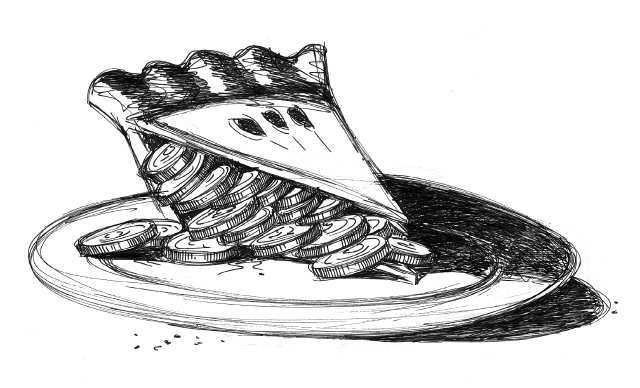The special session of the Legislature accomplished in four days what was impossible in 30: reaching an agreement on how to plug a $600 million gap in next year’s budget. Legislators did it because the pressure was on—and because a lot of preliminary work was done the week before. That work at least provided a starting point for heavy negotiations.Another reason we got it done: A special session operates under a different set of rules. Those rules made the session a boring spectator sport but allowed the haggling necessary for the final compromise.There was a minimum of posturing, showboating, finger-wagging and blame-flinging, all of which usually eat up enormous amounts of lawmaker time. (Note that I didn’t claim none of such childishness went on, only that it was held to a minimum.)Ordinarily in the Senate all tax measures are routed to the same committee, Corporations and Transportation, also called “Corpse.” All tax increases croak in this committee. They probably would have perished even during this year’s dire fiscal emergency, so forceful is the inertia in Corpse against ever raising taxes, any taxes.That committee’s meeting room is populated by two dozen or more leading corporate lobbyists, men and women who are paid very well to make sure no new taxes survive. So mechanized is the process of killing tax measures in Corpse that by now lobbyists don’t even give explanations for their opposition; they simply stand in orchestrated succession to indicate which groups they represent. Then the committee members vie with one another for the privilege of making the tabling motion (or they settle for seconding it), which drives the final stake through the tax bill’s heart. All this funereal procession lacks is lugubrious organ music and black veils for the mourners.The package of tax measures that finished the Legislature’s work could only have reached the Senate floor alive and kicking by bypassing Corpse entirely, an approach that is possible during a special session. This infuriates the corporate lobbyists, but in dangerous times you sometimes have to jettison superfluous personnel.The question of how to raise taxes is not multiple choice. Legislators don’t get to fill in a bubble next to their preferred option and then tally which proposal receives the most backing. With that approach, increasing income tax for high earners would have easily carried the day since a great many Democrats liked the idea. It was by far the individual tax with the most support; no other proposition came close. Unfortunately, it takes 22 votes to get any bill through the Senate, and while raising the income tax had the most fans, it didn’t clear that threshold.Instead, what happened was a search for a combination of taxes that, when packaged together, would corner that magic number. And remember, not one of the 15 Republicans in the Senate could be expected to vote for a tax hike of any kind.So the Democrats jockeyed back and forth, trying to find that serendipitous combination, which, however grudgingly, might draw 22 votes. They reached that plateau with a measure that eliminates a deduction benefiting mostly high-income earners. With that, the Democrats held their noses and voted for the entire package—along with an enhanced low-income rebate program so low-income taxpayers can recoup some of the gross receipts taxes they pay during the year.The total revenue from new taxes amounts to $230 million. With budget cuts of $170 million (on top of last year’s cuts of $300 million) and the addition of $200 million of federal “stimulus” money, the budget hole was spackled. If a good compromise is one that no one is happy with, then the state budget for 2011 fits that definition like a fine, silk glove. Republicans are disappointed that more of the mythic “governmental fat” wasn’t liposuctioned away. Conservative Democrats are disappointed that an income tax measure and a cigarette tax were included in the package. Progressive Democrats are sulking that the regressive tax on food was partially restored, and that a one-eighth of a cent increase in the gross receipts tax (sales tax) was added. An unhappy compromise, indeed, but one that state government is holding its breath over, praying it will survive the governor’s desk.
The opinions expressed are solely those of the author. E-mail jerry@alibi.com.



